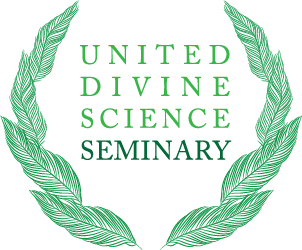
The Divine Science Practitioner
What is a practitioner?
The practitioner is one who has prepared him or herself through class work, study, and the practical application of Divine Science principles. The practitioner believes in the Omnipresence, the Omnipotence, and the Omniscience of God. One's faith is established in the One Mind in which we live and move and have our being. Most practitioners make application through the Council of Religious Education to become such. The approval of the application is based on the applicant's character, knowledge of Divine Science, and one's sincerity in applying this knowledge in everyday living. Sometimes a person is invited by the Council of Religious Education to become a practitioner - the invitation a result of the "proving or out picturing' in this one's life. Usually, it is known that this person has been helpful in showing others the Christ way of life. The Divine Science Practitioner is a product of the teachings and has proved the value of these teachings.
Does the practitioner heal you?
The practitioner will remain personal and objective in relation to another's problem. To some this seems cold and unsympathetic, but never fear your practitioner has a feeling of deep compassion for all who seek help. But one must remain objective in order not to identify with the patients problem.
Can the practitioner help you?
Yes, if the practitioner is wise, sincere, and dedicated, and if the patient is receptive and willing to cooperate. The practitioner does not claim to be a doctor, a psychiatrist, or a psychologist. But he or she does claim to be one who has faith in God, and believes in prayer. The practitioner will serve as a counselor and teacher. He or she will listen to your problem and help you to objectify and clarify it in your thinking. Sometimes a period of instruction in the Principles of Divine Science is needed. The practitioner will suggest reading matter suitable to the patient's need. Thus, the patient is lead through instruction, study, and prayer to see their problem in a different light. The practitioner does not superimpose or force ideas on the student, the process must be an unfolding one. Gradually, the patient relaxes, becomes more objective, and finally learns to release their problem to the will of God, knowing that God's will working through him or her is good. Often, this student-teacher relationship is not necessary. A person will telephone for help who has a fine understanding of principle. But a problem is on the threshold, and the call goes forth for the under-guiding of prayers offered by the practitioner, each knowing "that when two or more are gathered together in His name" miracles can happen.
How does the practitioner view you and your problem?
The practitioner's concern for you is that you not only study truth, but that you live it. The practitioner's prayer for you is that you may "walk in the Light." For it is on the silent plan of the soul that light is seen as light.
